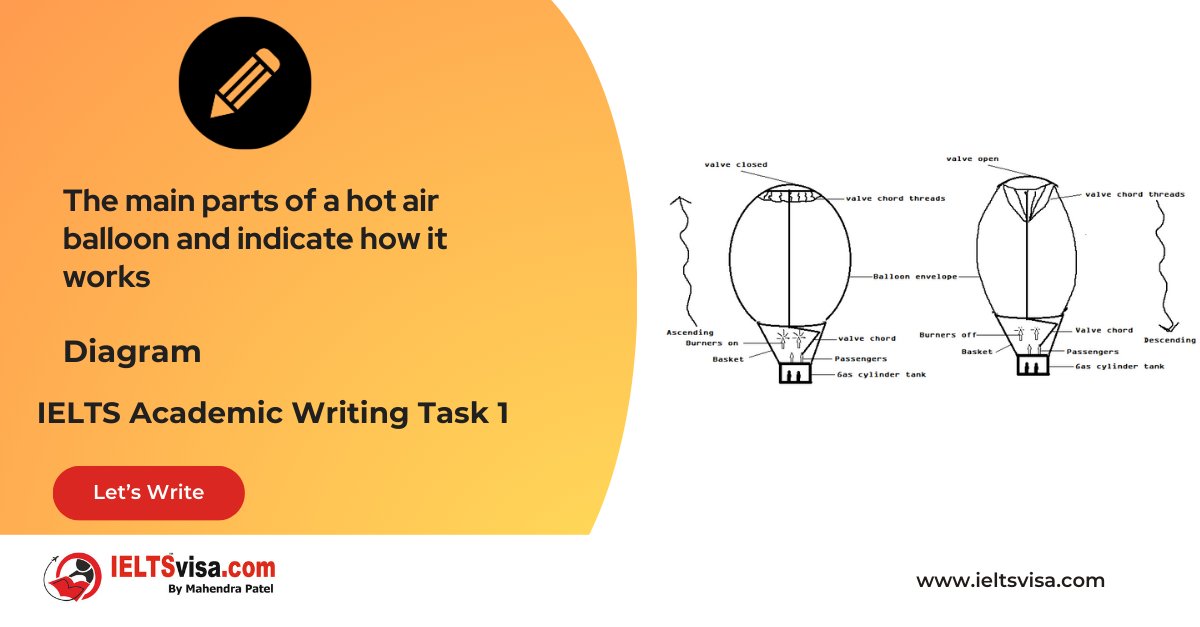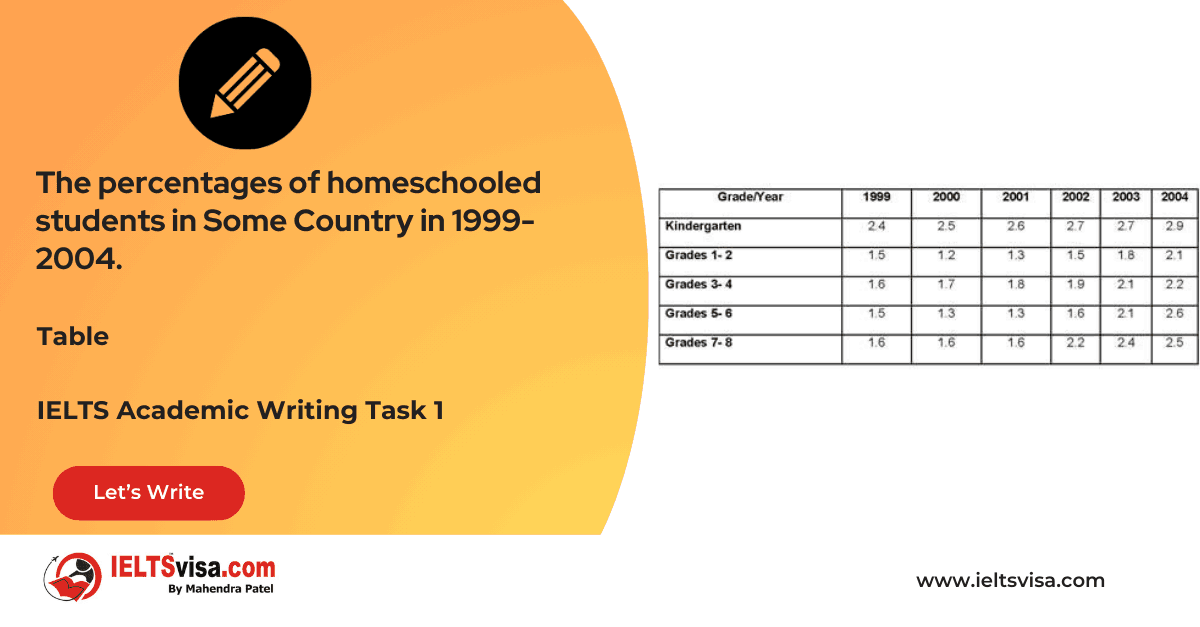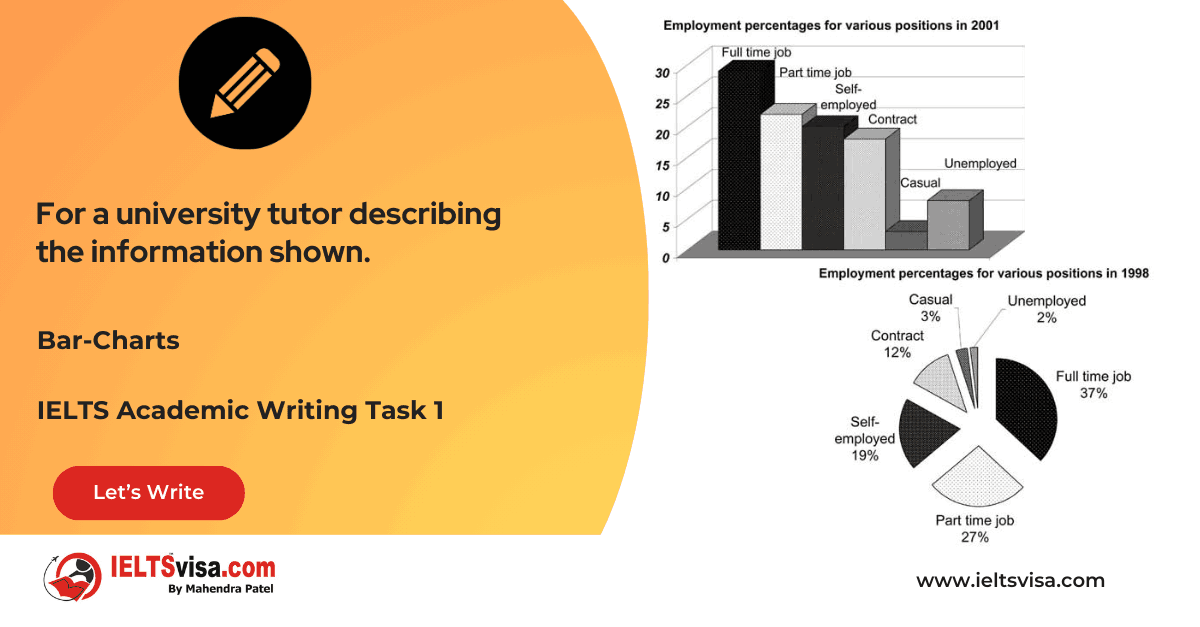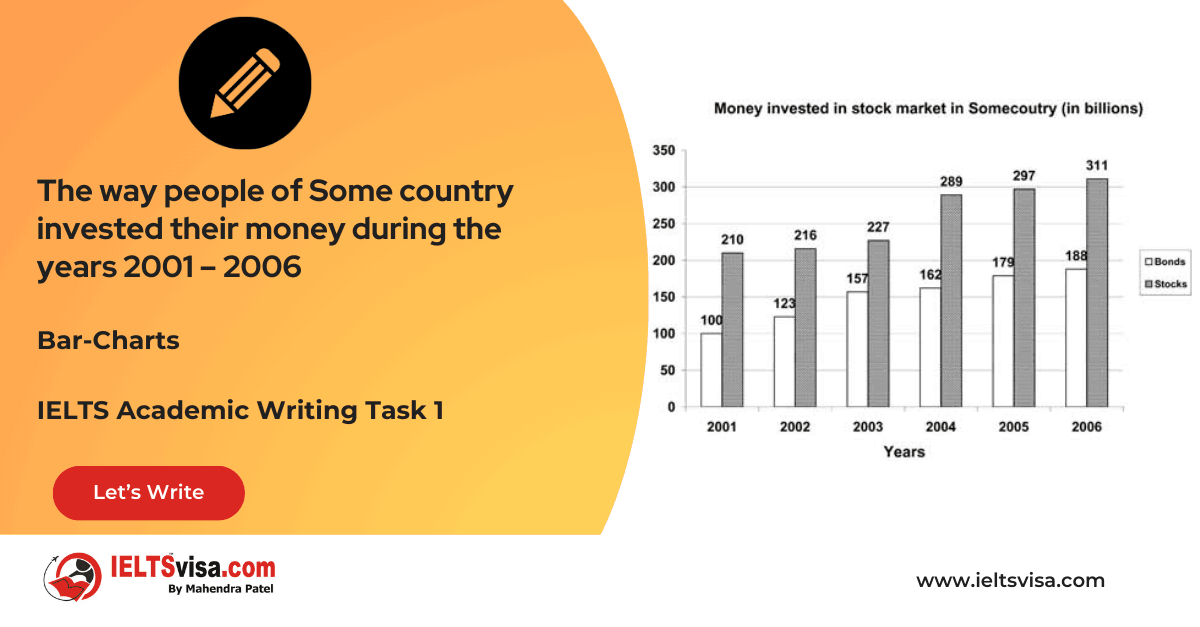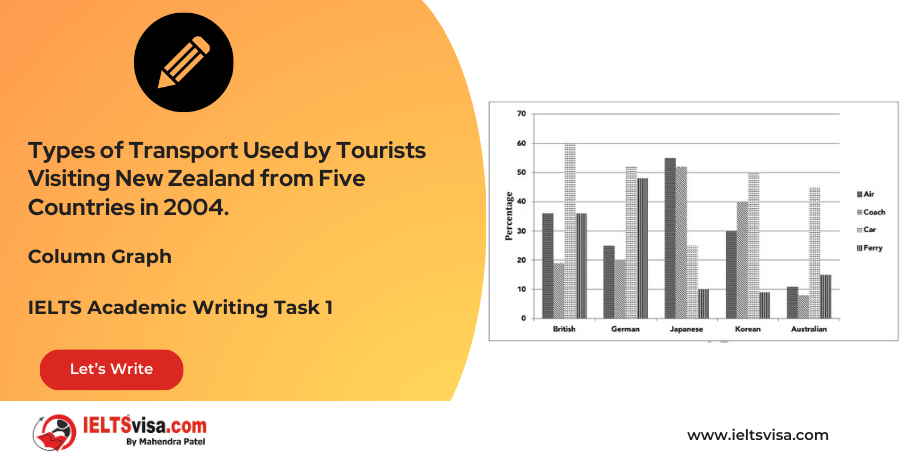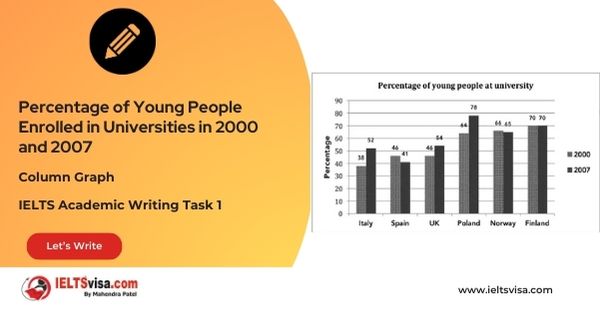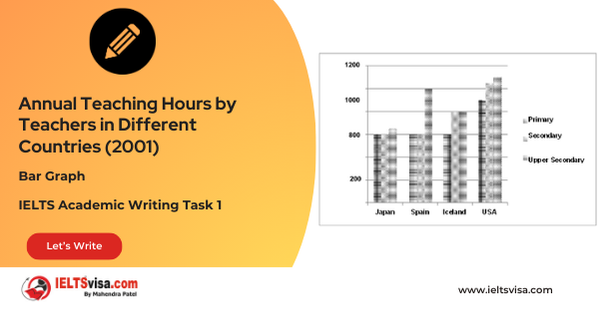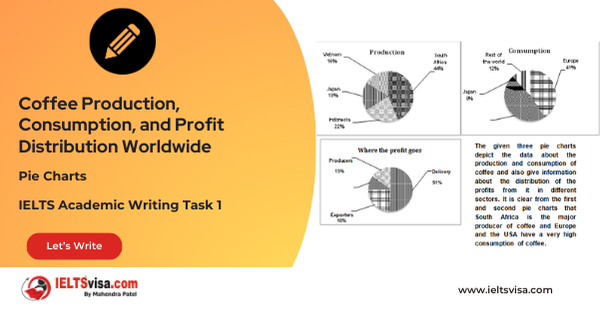Using Appropriate Verb Tenses to Describe Each Stage
ProcessesIELTS Academic Writing Task 1
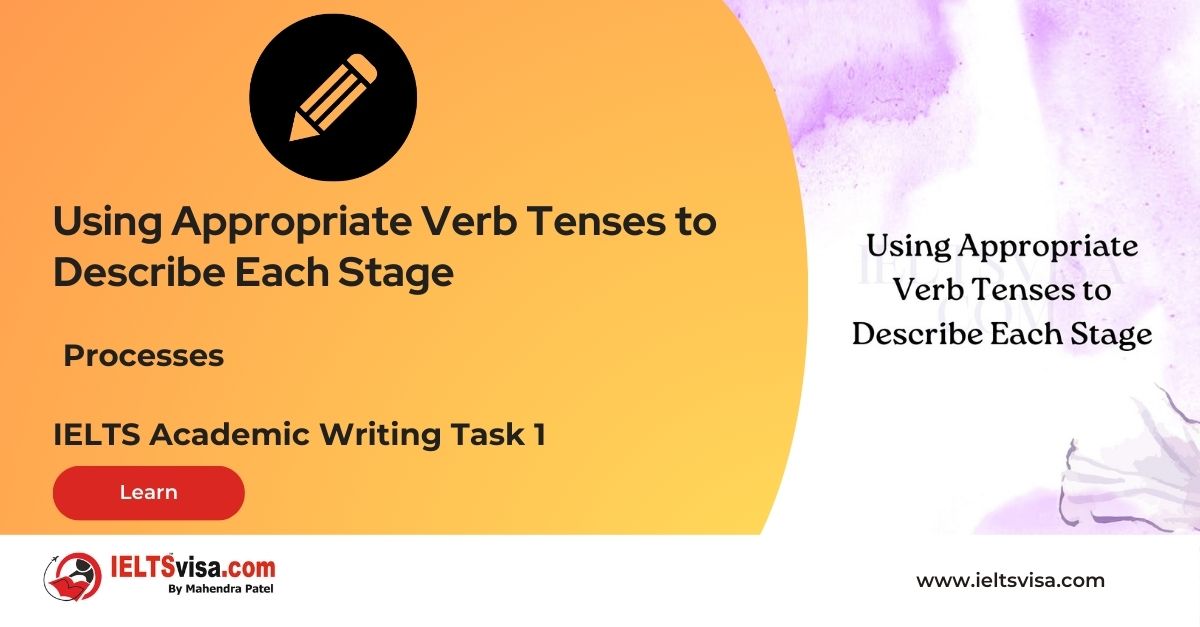
In the IELTS Academic Writing Task 1, candidates often encounter diagrams or flowcharts representing processes. Describing the main stages or steps of the process accurately is crucial for achieving a high score.
One important aspect of describing these stages effectively is using appropriate verb tenses.
This article will explore using verb tenses correctly to describe each stage, along with examples and sample answers.
1. Present Simple Tense:
The present simple tense is commonly used to describe actions or processes that are permanent or habitual. It is suitable for stages that are general statements of fact or describe routine actions.
Here’s an example:
The Water Purification Process Stage 1:
Raw water enters the treatment facility through an intake pipe.
In this stage, the use of the present simple tense “enters” indicates a habitual action that occurs regularly during the water purification process.
2. Present Continuous Tense:
The present continuous tense is used to describe actions that are happening at the time of speaking or actions in progress. It is appropriate for stages that depict ongoing actions.
Example: The Production of Paper Stage 1:
Wood chips are being soaked in water to soften them.
The use of the present continuous tense “are being soaked” suggests an ongoing action during the paper production process.
3. Past Simple Tense:
The past simple tense is used to describe completed actions or events that happened in the past. It is suitable for stages that indicate actions that have already occurred.
Example: The Manufacturing of Chocolate Stage 1:
Cocoa beans were harvested from the trees and collected in baskets.
The past simple tense “were harvested” and “collected” indicates that these actions took place in the past and are now completed.
4. Present Perfect Tense:
The present perfect tense describes actions or events that started in the past but have a connection to the present. It is appropriate for stages that emphasize the result or impact of past actions.
Example: The Construction of a Building Stage 1:
The foundation has been laid and is now ready for further construction.
The present perfect tense “has been laid” suggests that the action of laying the foundation happened in the past, but its result (the foundation being ready) has relevance to the present stage.
Sample Answer:
The provided diagram illustrates the process of coffee production.
The process involves four main stages, each described using the appropriate verb tense.
In the first stage, coffee cherries are picked from the trees by hand. This stage is represented using the present simple tense, indicating a routine action.
The second stage involves sorting the cherries based on their quality and ripeness. After sorting, the cherries are washed thoroughly to remove any impurities. These actions are described using the past simple tense, indicating completed actions.
Moving on to the third stage, the washed cherries are placed on drying beds or in drying machines to remove moisture. The present continuous tense is used to indicate an ongoing action.
Finally, the dried cherries are roasted in the fourth and last stages to enhance flavour and aroma. Roasting is a past simple tense verb, indicating a completed action.
The coffee production process includes stages described using different verb tenses, depending on the nature and timing of the actions involved. Adhering to the appropriate verb tense helps convey a clear and accurate description of each stage.
In conclusion, when describing the stages of a process in IELTS Academic Writing Task 1, it is crucial to use the correct verb tenses. The choice of verb tense should align with the timing and nature of the actions or events in each stage.
Practice using a variety of verb tenses to effectively describe processes and enhance your overall performance in the task.




Our Books
Master IELTS Speaking Part 1
IELTS Writing Task 1 Book
IELTS Writing Task 2 Book
Practice IELTS Other Modules
IELTS Listening
The IELTS Listening test assesses how well you can understand spoken English in various contexts. It lasts about 30 minutes and is divided into four sections with a total of 40 questions. The listening tasks become increasingly difficult as the test progresses.
IELTS Academic Reading
The IELTS Academic Reading section assesses your ability to understand and interpret a variety of texts in academic settings. It is designed to evaluate a range of reading skills, including skimming for gist, reading for main ideas, reading for detail, understanding inferences, and recognizing a writer's opinions and arguments.
IELTS Speaking
The IELTS Speaking test assesses your ability to communicate in English on everyday topics. It lasts 11-14 minutes and consists of three parts: introduction, cue card, and a discussion based on the cue card topic.
IELTS General Reading
IELTS General Reading tests your ability to understand and interpret various types of texts. Here are some key areas and types of content you can expect to encounter in the reading section, along with tips for effective preparation.
IELTS Academic Writing Task 1
In IELTS Academic Writing Task 1, you are presented with a visual representation of information, such as graphs, charts, tables, or diagrams, and you are required to summarize, compare, or explain the data in your own words.
IELTS General Writing Task 1
In IELTS General Writing Task 1, you are required to write a letter based on a given situation. The letter can be formal, semi-formal, or informal, depending on the prompt. Here’s a breakdown of the key components to include in your letter
IELTS Academic Writing Task 2
In IELTS Academic Writing Task 2, you are required to write an essay in response to a question or topic. Here’s a guide to help you understand the essential elements of this task
IELTS Exam Tips
To succeed in the IELTS exam, practice regularly, familiarize yourself with the test format, improve your vocabulary, develop time management skills, and take mock tests to build confidence.
Grammer for IELTS
Grammar is the foundation of effective communication in English. Understanding tense usage, subject-verb agreement, and sentence structure enhances clarity and coherence in writing and speaking.
Vocabulary for IELTS
Vocabulary plays a crucial role in the IELTS (International English Language Testing System) exam, especially in the Speaking and Writing sections. Here’s an overview of why vocabulary is important and how it impacts your performance
RECENT IELTS SAMPLES QUESTIONS AND ANSWERS
Task 1 – Diagram – A conference hall built in 1981 and planned for 2020
20:00 Start Pause Stop [df_adh_heading title_infix="IELTS Writing Task 1 Question" use_divider="on"...
Task 1 – Table – The percentages of homeschooled students in Some Country in 1999-2004.
20:00 Start Pause Stop [df_adh_heading title_infix="IELTS Writing Task 1 Question" use_divider="on"...
Task 1 – Table – For a university tutor describing the information shown.
20:00 Start Pause Stop [df_adh_heading title_infix="IELTS Writing Task 1 Question" use_divider="on"...
Task 1 – Bar-Charts – The way people of Some country invested their money during the years 2001 – 2006
20:00 Start Pause Stop [df_adh_heading title_infix="IELTS Writing Task 1 Question" use_divider="on"...
Task 1 – Diagram – Rainwater Harvesting and Conversion to Drinking Water in an Australian Town.
20:00 Start Pause Stop [df_adh_heading title_infix="IELTS Writing Task 1 Question" use_divider="on"...
Task 1 – Column graph – Percentage of Young People Enrolled in Universities in 2000 and 2007.
20:00 Start Pause Stop [df_adh_heading title_infix="IELTS Writing Task 1 Question" use_divider="on"...
Task 1 – Bar Graph – Annual Teaching Hours by Teachers in Different Countries (2001)
20:00 Start Pause Stop [df_adh_heading title_infix="IELTS Writing Task 1 Question" use_divider="on"...
Task 1 – Pie Charts – Coffee Production, Consumption, and Profit Distribution Worldwide
20:00 Start Pause Stop [df_adh_heading title_infix="IELTS Writing Task 1 Question" use_divider="on"...
Task 1 – Column graph – Types of Transport Used by Tourists Visiting New Zealand from Five Countries in 2004.
20:00 Start Pause Stop [df_adh_heading title_infix="IELTS Writing Task 1 Question" use_divider="on"...

